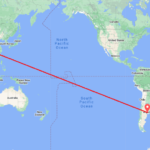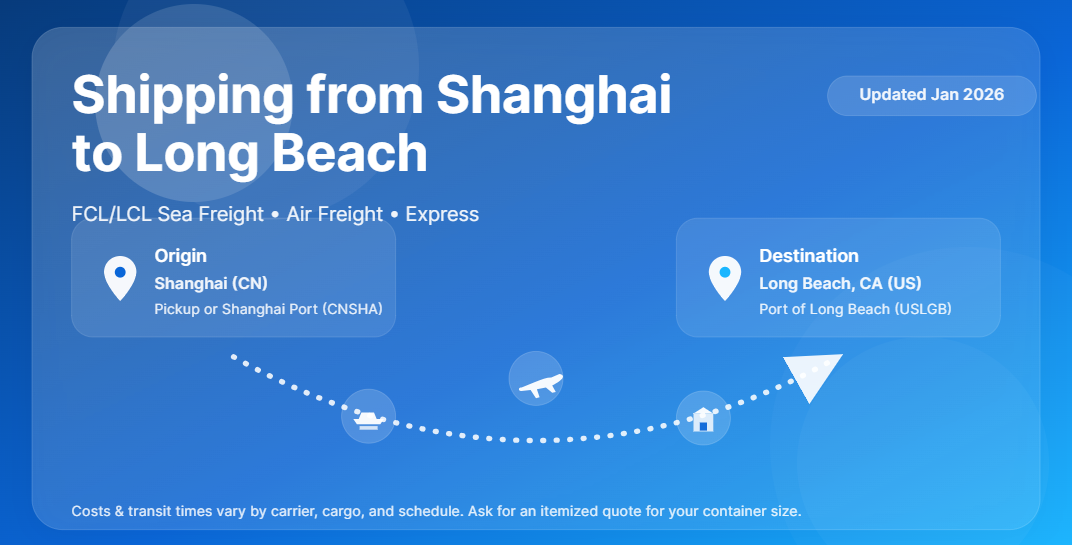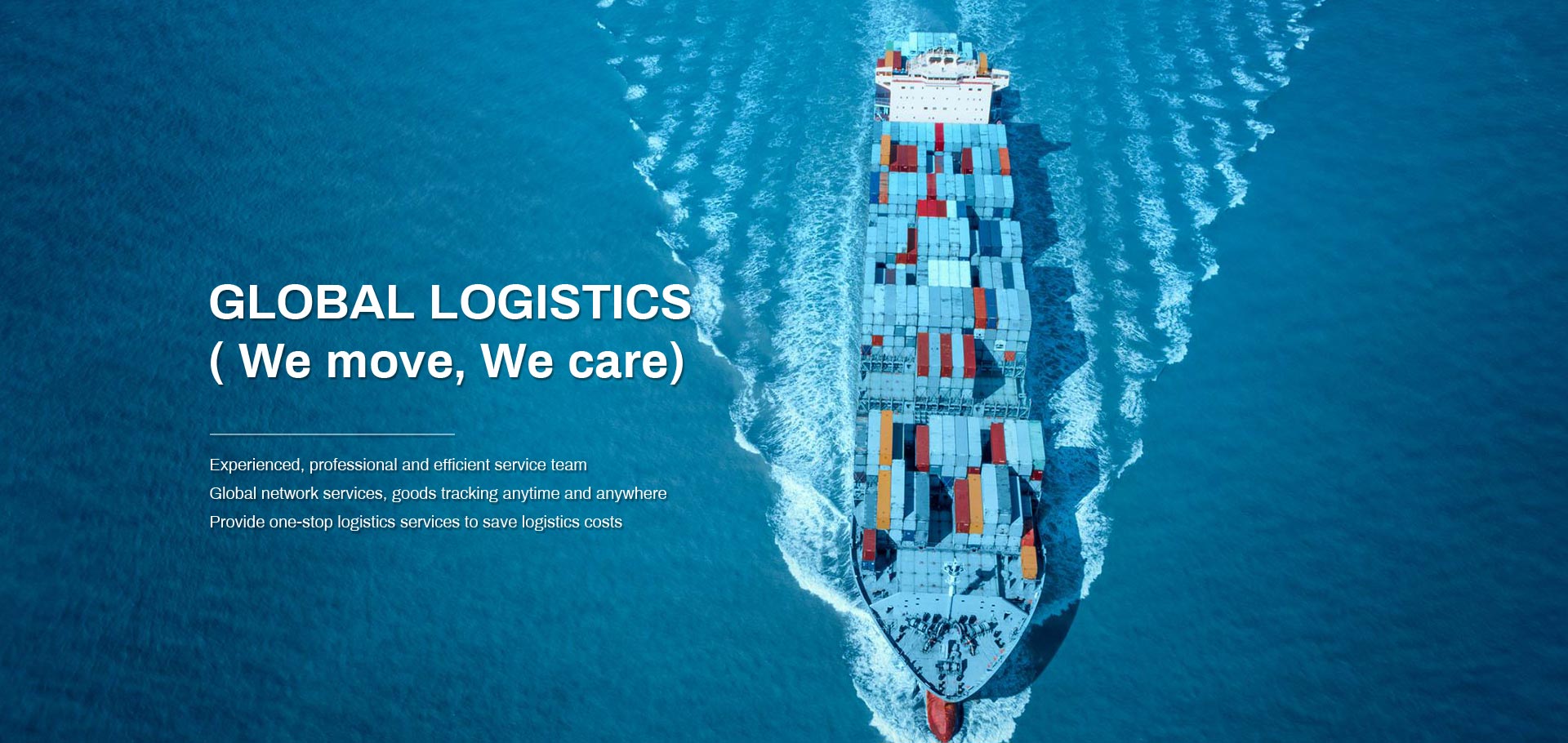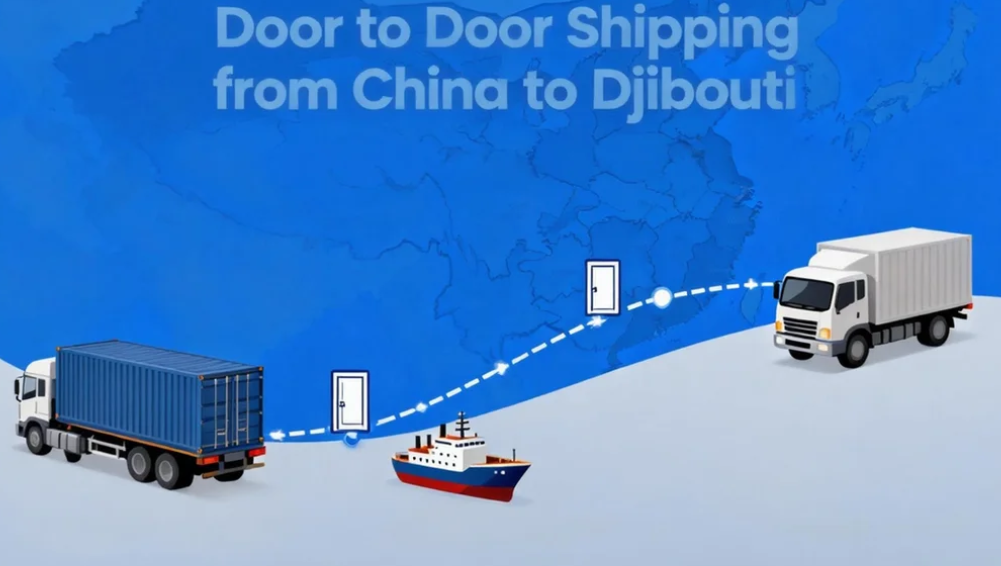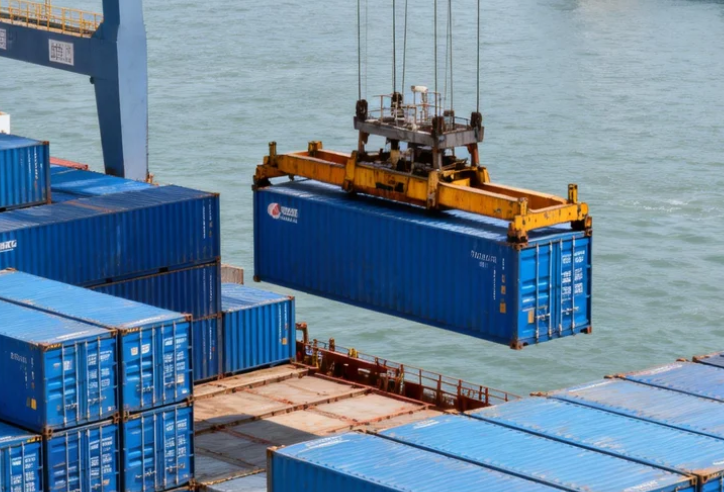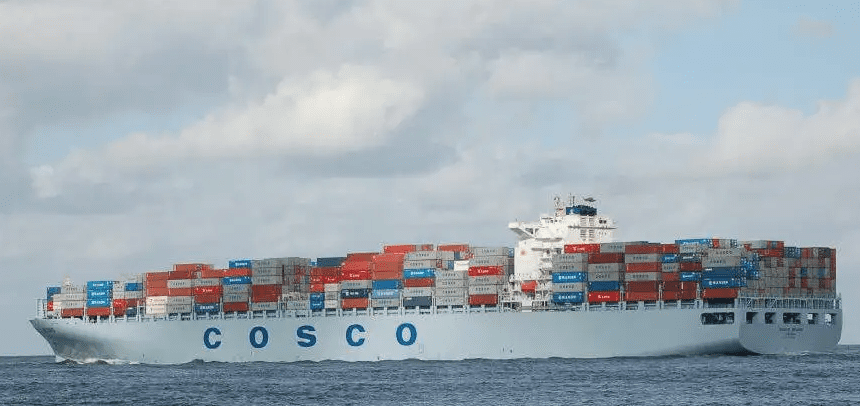Are you curious about how to navigate shipping rates from China to Argentina?
Understanding the intricacies of international shipping can save you time and money. In this article, we will delve into the key factors influencing shipping costs, provide a breakdown of freight charges and additional fees, and compare air freight and sea freight options. We aim to equip you with the knowledge you need to make informed decisions about your shipping needs. Let’s explore the essential aspects of shipping from China to Argentina!
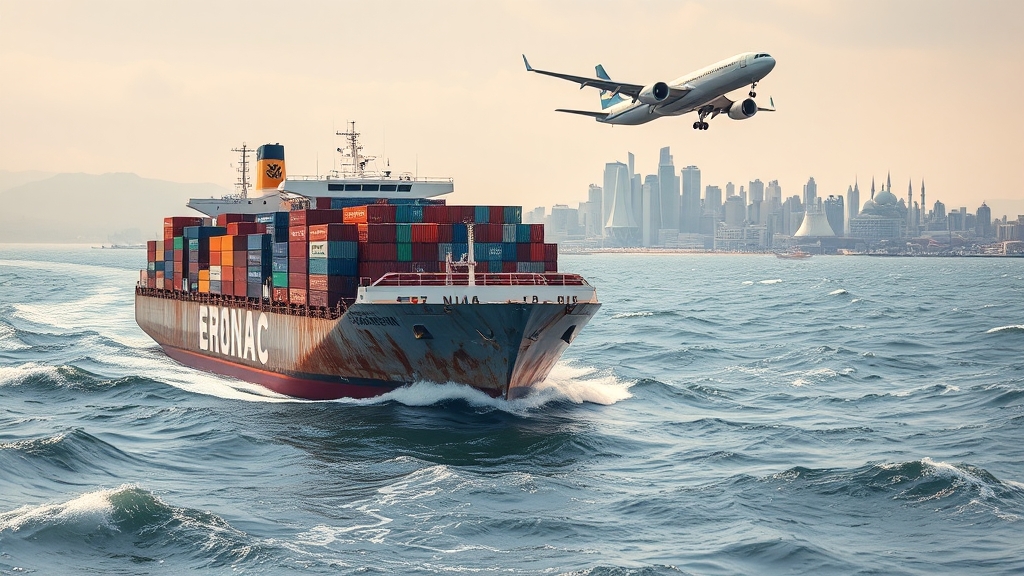
Understanding Shipping Rates from China to Argentina
Key Factors Influencing Shipping Costs
When importing goods from China to Argentina, several key factors significantly influence shipping costs. Understanding these elements is crucial for budget planning and choosing the best shipping options.
Distance and Route: The distance between the origin and destination impacts shipping costs. Generally, the longer the distance, the higher the freight rates. The most common routes from China to Argentina involve various maritime pathways, often through major shipping lanes.
Type of Cargo: The nature of the goods being shipped—whether they are bulky, fragile, hazardous, or require special handling—affects costs. For example, OOG (Out of Gauge) freight or Breakbulk Freight might incur additional charges due to special handling requirements.
Shipping Method: The choice between air freight and sea freight plays a significant role in cost determination. Air freight is generally faster but more expensive, while sea freight, though slower, is more economical for larger shipments.
Seasonality and Demand: Shipping rates can fluctuate based on seasonal demand. Peak seasons, such as the holiday season or Chinese New Year, tend to see higher rates due to increased shipping volumes.
Fuel Prices: Changes in global fuel prices can directly influence shipping rates. A rise in fuel prices usually leads to increased costs for freight companies, which may be passed on to the importer.
Insurance: Adding insurance to your cargo for protection against loss or damage can also affect the total shipping cost. It’s vital to assess the value of your goods to determine appropriate insurance coverage.
Types of Shipping Services Available
When shipping from China to Argentina, various services are available to suit different needs:
Ocean Freight: This is the most commonly used method for bulk shipments. It is cost-effective for large volumes and offers different services, including Full Container Load (FCL) and Less than Container Load (LCL).
Air Freight: Ideal for high-value or time-sensitive shipments, air freight is faster but significantly more expensive than sea freight. It is especially useful for urgent deliveries.
Consolidated Freight: This service allows importers to share container space with other shipments. It is a cost-effective option for small to medium-sized shipments.
Customs Clearance Services: Engaging a freight forwarder who provides customs clearance services can streamline the import process, ensuring compliance with Argentinian customs regulations.
Door to Door Services: This comprehensive service handles transportation from the supplier’s location in China directly to the recipient’s address in Argentina, offering convenience to business owners.
Breakdown of Shipping Costs from China to Argentina
Freight Charges and Additional Fees
The breakdown of shipping costs includes several components:
| Cost Component | Description |
|---|---|
| Freight Charges | Base cost for transportation based on weight and volume. |
| Port Fees | Charges for using port facilities in both China and Argentina. |
| Handling Fees | Costs associated with loading and unloading cargo. |
| Documentation Fees | Charges for necessary shipping documents like bills of lading. |
| Insurance Costs | Optional fees to cover cargo against loss or damage during transit. |
Customs Duties and Taxes
When importing goods to Argentina, customs duties and taxes are significant costs that must be considered:
Import Duties: These are taxes levied by the Argentinian government on imported goods. The duty rates vary depending on the product category and can range from 0% to over 30%.
Value Added Tax (VAT): In Argentina, a VAT of 21% is applicable on most imported goods. This tax is calculated based on the total cost of the goods plus any import duties.
Customs Clearance Fees: Hiring a freight forwarder often involves customs clearance fees, which ensure that all legal requirements are met for smooth importation.
Other Possible Charges: This can include anti-dumping duties, regulatory fees, or other surcharges applicable to specific goods.
By understanding these costs, importers can more accurately forecast their total expenses when shipping from China to Argentina. Partnering with a reliable freight forwarder like Dantful International Logistics can help streamline this process, ensuring compliance and optimizing costs.
Comparing Air Freight and Sea Freight Costs
When importing goods from China to Argentina, businesses often face a critical decision regarding the mode of transport: air freight or sea freight. Each option has its own set of advantages and disadvantages that can significantly impact both costs and delivery timelines.
Advantages and Disadvantages of Air Freight
Advantages:
- Speed: The primary advantage of air freight is its speed. Shipments typically arrive within 3 to 7 days, making it the preferred choice for urgent deliveries.
- Reduced Inventory Costs: Faster transit times can lead to lower inventory holding costs, as goods can reach the final destination quickly.
- Enhanced Security: Air freight facilities are generally more secure, decreasing the likelihood of theft or damage during transit.
Disadvantages:
- Higher Costs: Air freight is significantly more expensive compared to sea freight. According to recent data, shipping costs can range from $5 to $12 per kilogram for air freight, depending on the carrier and service level (source: Freightos).
- Weight Restrictions: Airlines impose strict weight and size restrictions, potentially limiting the types of goods that can be transported.
- Limited Cargo Capacity: The limited capacity of aircraft compared to cargo ships can be a bottleneck for large shipments.
Advantages and Disadvantages of Sea Freight
Advantages:
- Cost-Effectiveness: Sea freight is generally much cheaper than air freight, with costs averaging between $1000 to $2000 for a 20-foot container, depending on the shipping route and season (source: Statista).
- Increased Capacity: Cargo ships can carry large volumes of goods, making them ideal for bulk shipments or oversized items.
- Environmental Benefits: Sea freight is more eco-friendly in terms of CO2 emissions per ton-mile compared to air freight.
Disadvantages:
- Longer Transit Times: Sea freight can take anywhere from 20 to 45 days to reach Argentina from China, depending on the shipping route and port operations. For more details on shipping times, check out shipping times from China to Argentina.
- Higher Risk of Damage: Longer transit times can expose goods to various risks, including damage from the elements or poor handling.
- Complex Logistics: Sea freight requires coordination of multiple logistics components, including port handling, customs clearance, and inland transportation.
READ MORE:
- Shipping From China to the USA
- Shipping From China TO Canada
- Shipping From China TO Mexico
- Shipping From China to Panama
- Shipping From China to Costa Rica
- Shipping From China to Brazil
- Shipping From China TO Colombia
- Shipping From China to Jamaica
- Shipping From China to Venezuela
- Shipping From China to Argentina
How to Calculate Shipping Rates from China to Argentina
Calculating shipping rates is essential for budgeting and ensuring that your import operations are cost-effective. The process involves several components that should be considered carefully.
Using Online Freight Calculators
Many freight forwarders and logistics platforms offer online freight calculators that can provide instant shipping quotes based on your specific needs. To use these tools effectively:
- Provide Accurate Details: Input precise information, including the weight, dimensions, and type of goods you intend to ship, as well as your departure and arrival ports.
- Select Service Type: Choose between air freight or sea freight based on your urgency and budget. For information on air freight options, visit air freight.
- Review Additional Fees: Ensure the calculator includes additional fees such as terminal handling charges, customs duties, and insurance.
Factors to Consider in Rate Calculation
When calculating shipping rates from China to Argentina, several key factors can influence your overall costs:
- Shipping Distance: The distance between the ports of origin and destination significantly impacts freight charges. Longer distances generally incur higher costs.
- Mode of Transport: Choose between air and sea freight based on delivery speed requirements and budget constraints. For a deeper understanding of shipping methods, see Shipping From China to Argentina.
- Cargo Type: The nature of your cargo (e.g., perishable goods, hazardous materials) can affect shipping rates due to special handling requirements.
- Seasonal Fluctuations: Shipping rates can fluctuate based on the season. For instance, demand peaks during holiday seasons can drive prices up.
- Exchange Rates: Variability in currency exchange rates may also affect final costs, especially when paying in different currencies.
By understanding these elements, you can better navigate the complexities of shipping rates from China to Argentina, ensuring you choose the right logistics strategy that aligns with your business objectives. For expert guidance and cost-effective solutions, consider partnering with Dantful International Logistics, a highly professional provider in the international logistics space.
Choosing the Right Freight Forwarder for China to Argentina
Importance of Expertise in China-Argentina Shipping
Selecting the right freight forwarder is crucial for ensuring a smooth shipping process from China to Argentina. An experienced freight forwarder understands the complexities of international logistics, especially between these two countries. They are well-versed in the customs regulations, shipping routes, and local market conditions that could impact transit times and costs.
A knowledgeable freight forwarder, like Dantful International Logistics, can offer valuable insights into the best shipping methods and practices tailored to your specific needs. They can also provide guidance on documentation requirements, ensuring compliance with both Chinese and Argentine regulations. This expertise can significantly reduce the risk of delays and additional charges that may arise from improper documentation or lack of familiarity with local laws.
Questions to Ask Your Freight Forwarder
When choosing a freight forwarder, it’s essential to ask the right questions to ensure they can meet your shipping needs effectively. Here are some critical questions to consider:
What experience do you have with shipments from China to Argentina?
- Understanding their experience can give you confidence in their ability to handle your shipment.
What types of shipping methods do you offer?
- Inquire about options such as ocean freight, air freight, and whether they provide door-to-door services.
How do you calculate shipping costs, and what additional fees should I expect?
- A transparent explanation of costs helps avoid surprises in your final bill.
Can you provide references from previous clients?
- Feedback from other customers can give you insights into their reliability and service quality.
What insurance options do you provide?
- Adequate insurance is vital for safeguarding your goods during transit.
How do you handle customs clearance?
- A competent freight forwarder should manage customs processes efficiently, helping you navigate any potential hurdles.
By asking these questions, you can gauge the competence and reliability of your chosen freight forwarder, ensuring a smoother shipping experience.
Tips for Reducing Shipping Costs from China to Argentina
Consolidating Shipments for Savings
One effective strategy for reducing shipping costs is to consolidate shipments. Instead of sending multiple small packages, consider combining them into one larger shipment. This approach can lower your overall freight charges, as shipping costs are often calculated based on weight and volume.
Dantful International Logistics offers consolidated freight services that can help you maximize savings while ensuring your goods arrive safely and promptly. Additionally, consolidating shipments can simplify customs clearance, as you will only need to deal with one set of documentation for the combined shipment.
Negotiating with Freight Forwarders
Negotiation is a vital part of securing competitive shipping rates. When engaging with freight forwarders, don’t hesitate to ask for discounts or special rates, especially if you are a frequent shipper. Many forwarders, including Dantful, are open to negotiation, especially for larger volumes or long-term contracts.
Consider leveraging any existing relationships you may have with suppliers in China or partners in Argentina to negotiate better rates. Remember to compare offers from different freight forwarders to ensure you are getting the best deal possible.
Common Challenges in Shipping from China to Argentina
Navigating Customs Regulations
One of the most significant challenges in shipping from China to Argentina is navigating the complex customs regulations. Each country has its own import and export restrictions, and failure to comply can result in severe delays or additional costs.
Ensure your freight forwarder is proficient in handling customs clearance and can assist you with the necessary documentation, such as commercial invoices, bill of lading, and any specific permits required for your goods. Understanding the tariff classifications and applicable customs duties in Argentina is also essential to avoid unexpected fees.
Dealing with Delays and Unexpected Costs
Shipping delays and unexpected costs are common in international logistics. Factors such as weather conditions, port congestion, or customs inspections can cause significant disruptions.
To mitigate these risks, maintain open communication with your freight forwarder. They can provide updates on the status of your shipment and notify you of any potential issues. Additionally, consider budgeting for unforeseen expenses, such as demurrage charges or increased freight rates, to ensure you are financially prepared for any surprises during the shipping process.
By being proactive and informed, you can navigate the challenges of shipping from China to Argentina more effectively, ultimately leading to a more successful international trade experience. For further insights on shipping processes, you may also explore Shipping From China to Argentina or details on how long is freight from China to Argentina.

Young Chiu is a seasoned logistics expert with over 15 years of experience in international freight forwarding and supply chain management. As CEO of Dantful International Logistics, Young is dedicated to providing valuable insights and practical advice to businesses navigating the complexities of global shipping.










